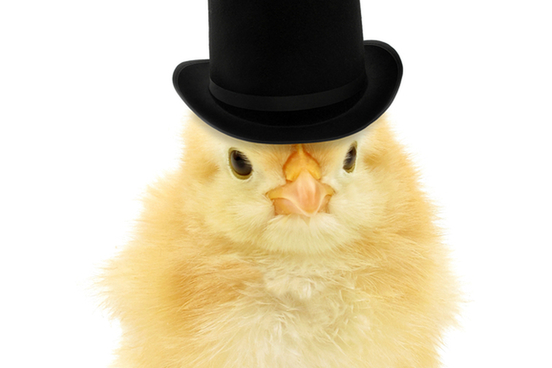
Bee's Knees
Definition: a highly admired person or thing
A bee's knees are, like our own, joints between each leg's femur and tibia. While we have only two, they have six (though they're not often referred to as such in technical contexts). And what knees they are! Splendid enough that they have, since at least the 1920s, conjured by mere mention the idea of something excellent—specifically a person or thing to be greatly admired.
But it cannot be ignored: a bee's knees are also very, very small. In fact, their size was the first thing English speakers associated them with, as best we can tell. In earliest known use, the term bee's knees was applied in similes to emphasize just how little or insignificant something was:
"Take a slice; there's a good fellow." "Well, if I do," said Ned, "let it be only the bigness of a bee's knee."
— James Grant, The Great Metropolis, 1836

Corker
Definition: one that is excellent or remarkable
If you cork a bottle you're a corker (especially if you do it professionally and/or as a piece of machinery). You're also a corker if you're a person or thing that is excellent or remarkable. That complimentary meaning of corker appears to date to the late 19th century, but is preceded by a meaning that has in the intervening years mostly faded from use. There is early 19th century evidence of corker referring to something that "corks" a discussion or argument, as it were; that is, something that puts an end to it.
The speaker in the following excerpt is, it seems, trying to be both non-bottling kinds of corkers:
"You think so now, because I am not appearing at my best. You see me nervous, diffident, tongue-tied. All this will wear off, however, and you will be surprised and delighted as you begin to understand my true self. Beneath the surface—I speak conservatively—I am a corker!"
— P.G. Wodehouse, Picadilly Jim, 1917

Dilly
Definition: one that is remarkable or outstanding
The seventh puzzle was a dilly, conceived by Henry Hook, a frequent tormentor of readers of the Boston Sunday Globe.
— E. J. Kahn, Jr., The New Yorker, 11 May 1987
A dilly is delightful, and that's not a coincidence. The noun comes from an obsolete adjective dilly that means "delightful," and that likely came about by some nipping and tucking of the word delightful itself (though technically the process is more properly called "shortening and alteration"). Dilly has a number of other meanings, all too obscure for this dictionary. As a noun, dilly can refer to a horse-drawn wagon or cart, a duck, a daffodil, and a sapodilla. As an adjective it can mean "silly" or "foolish" (especially in Australian English), and as a verb it's a shortened form of dillydally.

Cat's Meow
Definition: a highly admired person or thing
The word meow (which the British spell miaow) on its own refers to the cry of a cat, as is obvious to anyone who's heard a cat's cry. Currently available evidence dates that use to the late 1500s. Along the way meow developed the secondary meaning "a spiteful or malicious remark." Mid-20th century journalist Walter Winchell sometimes had a "meow of the week" in his gossip columns.
But the meow in cat's meow is clearly of a more charming variety. It's referred to someone or something greatly admired since at least the 1920s. The terms is often employed with a nod to its feline heritage:
Barncat Artisan Ales in Cambridge has been the cat's meow for over seven years, but it's closing permanently at the end of August.
— Wayne Newton, The London Free Press, 10 Jun. 2023

Jim-Dandy
Definition: something excellent of its kind
This word (which also functions as an adjective) involves two men, though only one is named outright and both are possibly wholly fictional. Some 19th century Jim was apparently a fine fellow. Centuries before him, a Jack was not quite so admired. We'll deal with the conspicuous first: the jim in jim-dandy does indeed come from the name Jim. All evidence suggests Jim was loved by all, or was, at least, excellent. The dandy part of jim-dandy, however, likely comes from the word jack-a-dandy, which is defined in Merriam-Webster Unabridged as "a little foppish impertinent fellow."
He seemed surprised when he saw most of the back yard in the front yard, but he said we had done a jim-dandy job.
— Harper Lee, To Kill a Mockingbird, 1960

Pip
Definition: one extraordinary of its kind
Pip, which also refers to a small fruit seed like that found in an apple or orange or pear, comes from the word pippin, a term that covers similar territory. A pippin is a crisp and tart apple (especially good for pies and the like), as well as a person or thing that is, or should be, highly admired.
"I wish, darling, you could have seen my drive at the eighth just now. It was a pip!"
— P.G. Wodehouse, The Clicking of Cuthbert, 1922
Pip has a number of homonyms (words that are spelled and pronounced like it but that have different meanings and etymologies), each of which has several senses. Pip can refer to a disease that birds get, a nonspecific human ailment, and, in British English, a feeling of irritation or annoyance. Pip can also refer to one of the dots on dice or dominoes, among other things. Or, it can, also in British English, refer to a short, high-pitched tone. Pip is also a verb. Er, make that two: one means, in part, "to break open the shell of an egg in hatching"; the other means "to beat by a narrow margin." That last one is also British.

Lulu
Definition: one that is remarkable or wonderful
Like many of these words for the best things, lulu is comfortable in phrases like "a real lulu" and "a lulu of a ____." Earliest known evidence of the word dates to the 1880s. The origin of the word is not known, but one theory is that it's from the name Lulu, a nickname for "Louise"—perhaps a particular Louise who was quite a lulu.
Schrader enters hothouse Southern Gothic territory with this uneasy romantic triangle. He adds in a lulu of a secret backstory for Narvel, which stays secret for the first 20 minutes of "Master Gardener.”
— Michael Phillips, Chicago Tribune, 19 May 2023
Merriam-Webster Unabridged defines another lulu: it's also a word for a Samoan barn owl.

Nifty
Definition: something that is very good or attractive; especially a clever or neatly turned phrase or joke
The noun nifty isn't nearly as nifty as the adjective nifty, if the frequency of its use is any indication. But the fact that the noun isn't common shouldn't prevent you from using it.
The noun nifty, which is currently dated to the early 20th century, comes from the adjective, but no one knows where the adjective came from. An example from 1865 reports that it's short for magnificent, but evidence for that origin is scant.
Be nice if he would give you a job, but He's not like Putnam. That One enjoys having me stick around, so he can nag me and try out all the nifties he heard in Munich and Florence.
— Sinclair Lewis, Prodigal Parents, 1938

Standout
Definition: one that is prominent or conspicuous especially because of excellence
Before there were standouts—which, from current available evidence, were first identified as such in the late 1920s—there were things that stood out. The verbal phrase stand out was around a long time before the noun showed up. Starting in the 14th century stand out developed various meanings, including "to appear as if in relief," "to be prominent or conspicuous," "to steer away from shore," and "to be stubborn in resolution or resistance."
If we give the noun a few centuries maybe it'll develop a panoply of meanings too. In the meanwhile, it does merely what it has been doing for almost a century now; describing something that rises above the crowd.
A third-placed finish at the ISPS Handa Championship in Japan in April was the standout performance on his comeback and offered a glimpse as to what he can do, now fully fit.
— Adam Lanigan, Sunday Post (Dundee, Sc.), 18 Jun. 2023

Great Ways to Say 'Great'
'Wicked', 'boffo', and five more truly great words
SEE THE LIST >





